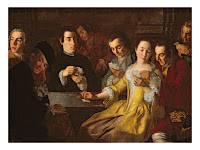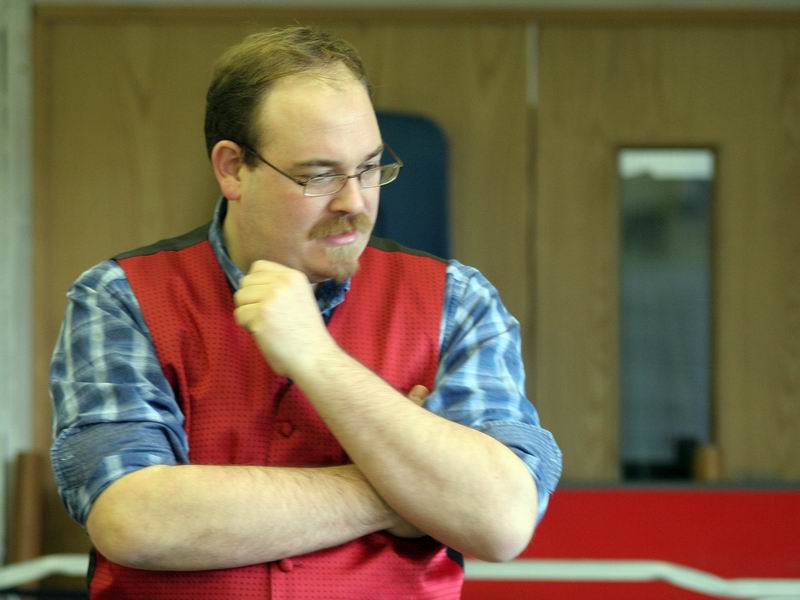It was, as they say, later the same day.
 |
| Schaffkopf cards |
Schmitt was having a relaxing time, being happily pampered at the House of Madam Palme. He was now of an age where a comfortable salon was of more importance to him than the pleasures of the flesh, preferring to spend his time in a seat by the fire, sipping a good schnapps and chatting wittily with young ladies who flattered him by laughing at his jokes and hanging on his every word.
That had not prevented him from keeping a weather eye on some of Madam Palme’s other clients. The unspoken rule was that no-one spoke of such meetings outside of the premises, but Schmitt occasionally saw individuals whose public stances were clearly at variance with their private morals. Frequent nocturnal visitors often included older and more senior members of the Abbey’s religious hierarchy and supposedly happily married Burghers along with wealthy farmers and landowners from the countryside. Other customers included the usual run of drunken soldiery on payday as well as visiting tradesmen and travellers from out of town.
 |
| Madam Palme's salon |
This allowed Schmitt to pick up a useful trail of gossip, and he was currently embarked on a gentle fishing expedition with a visitor from out of town. The circumstances involved alcohol, a couple of pretty girls and a game of ‘strip Schaffkopf’, a card game recently brought back from the fleshpots of Munich by Schmitt himself. The visitor was a Major from the Emperor’s Court, and apparently he had found his way to Madam Palme’s establishment after visiting the Abbey, via a couple of local taverns. As one of the girls gigglingly removed her petticoat (the girls were very good at losing this game to entertain their clients) Schmitt prompted the Major further:
 |
| Experts at losing |
‘So, you do not know what was in the despatch? Seems a shame that His Imperial Highness did not see fit to take you into his confidence’
‘Is, whatsit...secret’ the Major averred hazily. ‘But it’s obvious, really, when you think about it...’ The Major’s furrowed brow suggested actual thinking was something he was struggling with right now.
‘Well, I am just a humble businessman’ Schmitt said silkily, ‘but I am responsible for this town and I am sure we would like to help if we could.’ He poured the Major another schnapps as one of the girls stroked his thigh provocatively.
 |
| Cards at Madam Palme's |
‘Well, the way I see it is like this’ The Major commenced, before drifting away drunkenly. Schmitt waited until he drifted back again. ‘Oh yes,' the Major said, suddenly discovering that he was still talking, ‘the Emperor needs all the friends he can get right now, to prove his wassname with the Elector is not just him bullying people. So my guess is that he has asked the Abbot to join the war. Is political I fink...’ he trailed off as his cards swam in front of his eyes again.
‘Really..?’ said Schmitt. ‘Well, I am sure that you can tell His Imperial Highness that the Free City of Kempten stands four square behind him.’
And that is where we are staying, Schmitt added mentally.
The Major slumped forward, finally giving way to an alcoholic stupor whilst Schmitt pondered the implications. Idly he wondered what Major Forster of the Burgherwehr was up to.









